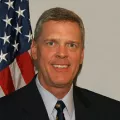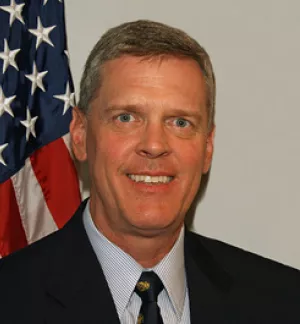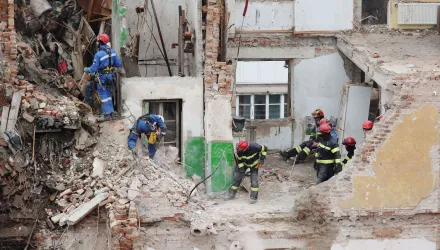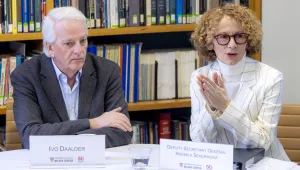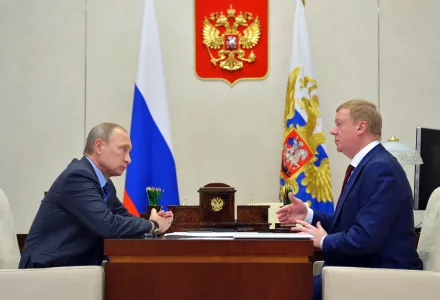
How has an historically professional Russian military responded to the pressure of a Putin regime over the past two decades? For that answer, we can look to the fates of three Russian officers and their unexpected intersection last month, on May 19th.
In March 2005, Anatoly Chubais, the architect of Russia’s western leaning 1990s privatization plans, and at the time head of Russia’s electricity monopoly, survived an assassination attempt.
Chubais was being driven to work in Moscow when a bomb exploded near his BMW limousine, tearing a 15-foot-wide crater in the pavement. Two attackers wearing combat fatigues then sprayed the car with automatic weapons as Chubais’ driver sped away. The assailants escaped into a nearby forest after exchanging fire with Chubais’ security detail.
According to the ITAR-Tass news agency, a retired Russian army colonel was arrested hours later after investigators traced a Saab car that may have been used as the getaway vehicle. Investigators found the car on a street by the Moscow River and determined it belonged to the suspect’s wife, who lived in a nearby apartment. The retired colonel was a GRU officer and a specialist in mines and explosives. He was later acquitted.
Fast forward to 2022:
On January 31st, the chairman of the All Russia Officers Assembly and former senior political-military affairs officer on Russia’s General Staff, Gen-Col (ret) Leonid Ivashov, published a blistering open letter on behalf of the assembly in which he claimed Putin was on a suicidal march to war against Ukraine. “We, Russia’s officers, demand that the President of the Russian Federation reject the criminal policy of provoking a war in which Russia would be alone against the united forces of the West… [Putin must] retire.” The letter was shocking and revealed that at least some military veterans and experts disagreed with Putin’s plans – which were by then obvious to them all.
Another retired General Staff officer, Colonel Mikhail Khodarenok, also publicly warned on February 3rd against starting a war with Ukraine and the West. On May 15th, three months into the war, Khodarenok criticized the conduct of the Russian invasion in an appearance on the popular Russian evening news show, 60 Minutes. He claimed that the situation for Russia would only get worse in the coming weeks.
But on May 19th, four days later, Khodarenok was back on the 60 Minutes show, reversing his earlier comments and predicting a Russian victory in the end. He had clearly received remedial training and new talking points from the Russian government.
Also on May 19th, the All Russian Officers Assembly posted on its website an announcement that chairman Ivashov, who had earlier condemned the war, was stepping down “because of age.” In his place the assembly had chosen a new chairman – retired Colonel Vladimir Kvachkov. On the same day, Kvachkov published an open letter on behalf of the assembly’s officers, reversing Ivashov’s January assessment and encouraging President Putin to enlarge his “special operation” into a full-fledged war, mobilizing reserves and organizing territorial defense forces along Russia’s borders. The assembly’s new leadership recommended the full seizure of all territory East of the Dnieper River, Kyiv, and the entire Black Sea coastline of Ukraine.
Who is Kvachkov? Vladimir Kvachkov is the retired army colonel arrested, but not convicted, in 2005 for the attempted assassination of former Minister Chubais. Kvachkov represents the ultra-right wing nationalists, who for two decades have toiled in the shadows for Putin but are now moving to the daylight to carry out his policies.
The fates of Ivashov, Khodarenok, and Kvachkov illuminate the arc of change in Russia’s military under Putin’s leadership.
Anatoly Chubais, the west-leaning reformer and assassination survivor, resigned his government position in March of this year in protest of the war in Ukraine. According to British news source The Guardian, Chubais has left Russia.
Retired Brigadier General Kevin Ryan is a Senior Fellow at Harvard Kennedy School’s Belfer Center. He served as U.S. Defense Attaché to Moscow and Director, Army Strategy, Plans, and Policy (G35), Pentagon.
Ryan, Kevin. “ Putin’s Pressure Campaign: An Inflection Point for Russia’s Military.” Belfer Center for Science and International Affairs, Harvard Kennedy School, June 13, 2022

